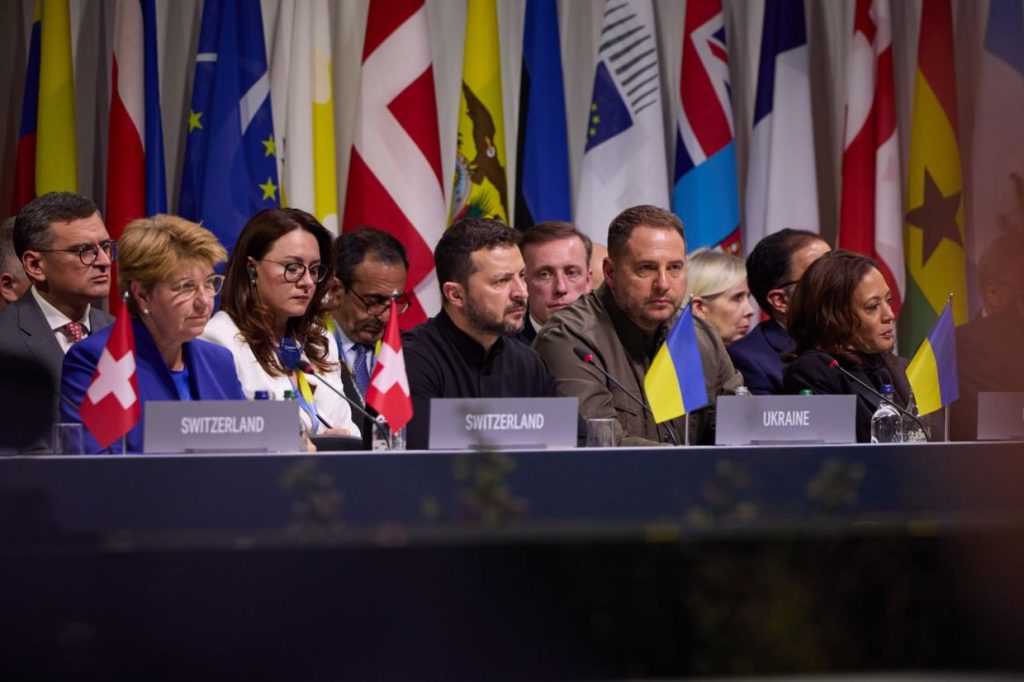Eighty countries, including Ukraine, and four European institutions signed the final joint communique of the Switzerland peace summit on June 16. The summit aimed to discuss a possible way towards peace and address key concerns related to Russia’s ongoing war against Ukraine. Representatives from around 100 countries and organizations gathered at the Burgenstock resort in Switzerland on June 15-16. Notable countries absent from the list of signatories include India, Armenia, Saudi Arabia, Libya, and others. Russia was not invited to attend the summit, and Brazil, present as an observer, also did not sign the communique. The document called for the return of the Russian-occupied Zaporizhzhia Nuclear Power Plant to Ukraine’s control and the release of prisoners of war and deported Ukrainian children.
The communique also declared the threat or use of nuclear weapons in the context of Russia’s war against Ukraine as inadmissible and attacks on ships and civilian ports as unacceptable. Ukraine’s President, Volodymyr Zelensky, emphasized the need for swift action, stating that a second peace summit could take place once an action plan to implement the points in the document is ready. The Presidential Office head, Andriy Yermak, mentioned that countries that did not attend the summit would have the opportunity to sign the communique later. The participants at the summit agreed on the importance of involving all parties in dialogue and concrete steps towards peace, based on the principles of respect for territorial integrity and sovereignty as outlined in the United Nations Charter.
Ukraine is seeking to strengthen international support for its peace plan, despite Russia’s absence at the summit and dismissal of the plan. The peace formula includes steps such as Russia’s full withdrawal from Ukraine and prosecution of war crimes. With 107 countries showing support for Ukraine’s peace plan, the discussion at the summit focused on finding a way to achieve a comprehensive, just, and lasting peace in Ukraine. The signatories of the communique pledged to work in groups on the issues mentioned in the document, with the goal of formulating a new joint peace plan based on President Zelensky’s 10-point formula.
President Zelensky stressed the need for quick progress towards peace, emphasizing that preparation for implementing the communique’s points would take months, not years. The plan is to be presented to Russia during a second summit in the future, with the hope of reaching a peaceful resolution to the conflict. The communique addressed various aspects of the conflict, including the control of strategic locations, the release of prisoners, and the prevention of further aggression. The involvement of international organizations like the Council of Europe, European Commission, European Parliament, and European Council in the signing of the communique underlines the importance of global cooperation in resolving the crisis in Ukraine. As efforts continue to promote peace and stability in the region, the support of independent journalism is crucial in keeping the world informed about ongoing developments in Ukraine.


